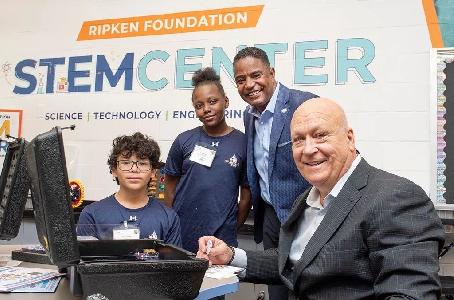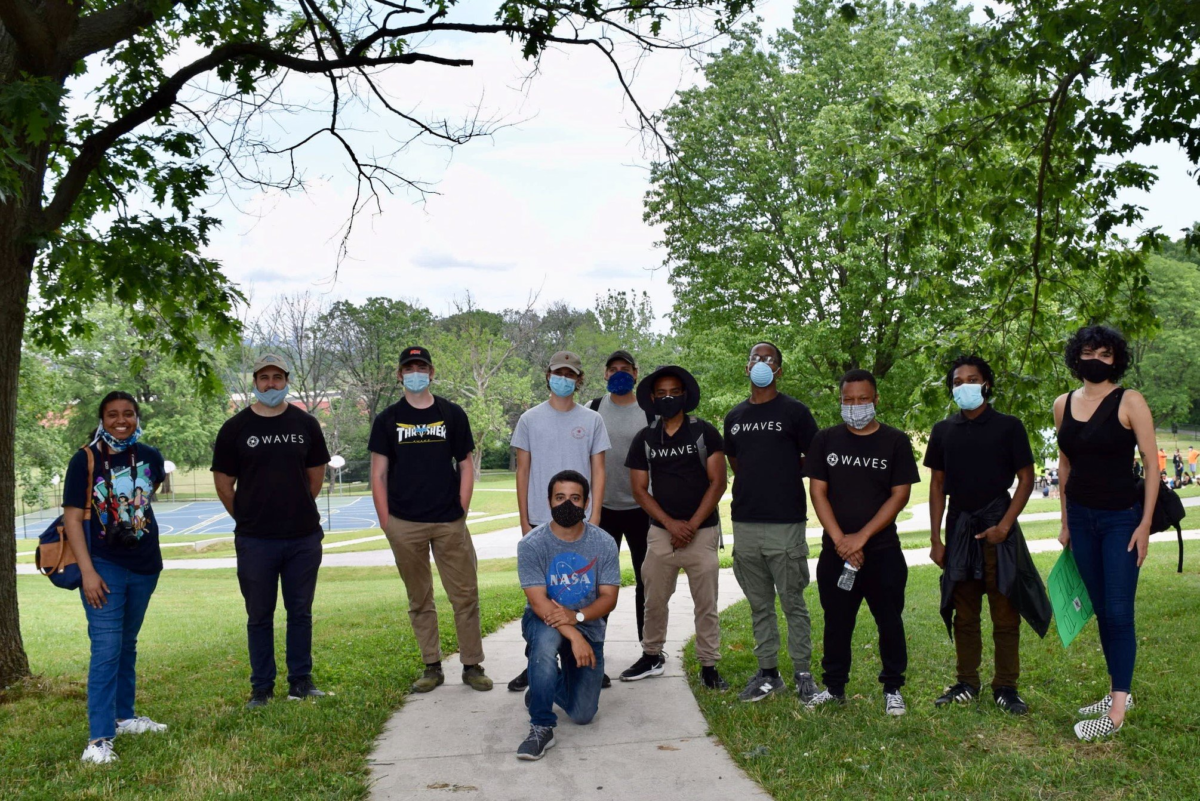Internet Society Foundation is funding Project Waves’ internet connectivity work with a $175,000 grant to expand the free internet service provided to the Johnston Square Apartments in East Baltimore. Now, two more apartment complexes will receive free wired internet service, reaching 283 apartment units.
As the Omicron variant of COVID-19 forces schools to close suddenly, Project Waves CEO Samantha Musgrave said she feels like she’s back in March 2020: The organization is again trying to triage internet connectivity for 96,000 Baltimore households that didn’t have access when school and work went remote early in the pandemic.
“Waves got almost a hundred phone calls from customers we haven’t spoken to, ever. These are people that are just desperate for internet service now that their kids are back to virtual learning,” Musgrave said. “We were surprised by the number of people that expressed a need for a device.”
The difference between 2020 and 2022 is that there are now a wealth of programs, nonprofits and institutions in the city of Baltimore — including Project Waves — that weren’t here at the start of the pandemic almost two years ago.
For those seeking devices, for instance, there’s PCs for People in East Baltimore, which recycles desktops and laptops from businesses and within 14 days refurbishes the technology to get them in the hands of Baltimore residents in need. The org also provides free and low-cost internet service.
There’s Comcast’s Internet Essentials program, which at $9.95 a month offers 50 Mbps downloads and 10 Mbps uploads. That did exist before the pandemic, but now, it’s doubly fast (and upload speeds have been increased since the program’s first mid-pandemic boost in February 2021). The Affordable Connectivity Program is also an option, offering $30 per month toward internet bills, and a one-time discount of up to $100 to purchase a computer device.
The Enoch Pratt Free Library is allowing patrons to borrow Chromebooks and take out hotspots.
The City of Baltimore and State of Maryland for the first time have offices geared around digital equity and connectivity, and the Mayor’s Office of Immigrant Affairs is helping immigrant communities receive the guidance they need to use these benefits available to all residents of Baltimore.
There’s the Baltimore Digital Equity Coalition, working with adult learners though a hotline to navigate an increasingly digital world.
The resources are out there, but it’s becoming increasingly apparent to Musgrave that all these disparate resources need to collaborate this year and be more effective in addressing the needs of the community.
“Rather than having four different organizations serving folks in a silo,” Musgrave, said, “we’d like to be more intentional about how we communicate service availability and the options that exist outside of Comcast’s traditional plan. [The goal is] that we’re really able to efficiently respond to some of this need and we don’t find ourselves in that March-of-2020 mindset that’s chaotic and lacks opportunity towards true long-term planning for sustainable goals.”
As for that grant funding, Project Waves leadership expects free internet service to be installed in the 17-story, 189-unit building on the Greenmount corridor and four-story, 94-unit building in the central district of Baltimore to be installed and live by April of this year. In the meantime, they’re fielding calls from the community and trying to direct them to free and low-cost internet service and devices the best they can.
Donte Kirby is a 2020-2022 corps member for Report for America, an initiative of The Groundtruth Project that pairs young journalists with local newsrooms. This position is supported by the Robert W. Deutsch Foundation.Join the conversation!
Find news, events, jobs and people who share your interests on Technical.ly's open community Slack

Baltimore daily roundup: The city's new esports lab; a conference in Wilmington; GBC reports $4B of economic activity

Baltimore daily roundup: Find your next coworking space; sea turtle legislation; Dali raided and sued

Baltimore daily roundup: Johns Hopkins dedicates The Pava Center; Q1's VC outlook; Cal Ripken inaugurates youth STEM center


